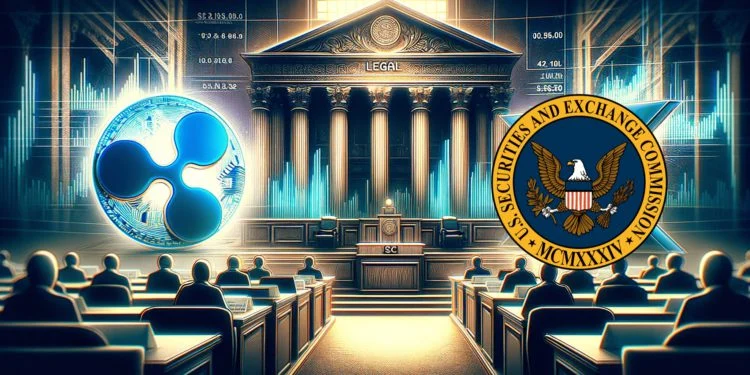
The U.S. Securities and Exchange Commission (SEC) sued Ripple in December 2020, saying that Ripple had conducted up to 100,000 transactions through unregistered “securities” (XRP coins) since 2013. $1.3 billion raised. However, Ripple had an initial victory last July.
The final trial progress is currently expected to begin on April 23 this year, and the outcome may have a significant impact on the cryptocurrency industry.
SEC requires Ripple to hand over important documents
Before the trial, the SEC asked Ripple to hand over important documents, including two years of audited financial reports and Ripple’s contracts with non-employee counterparties. Additionally, the SEC asked Ripple to provide details of proceeds from institutional sales of XRP it received following the indictment. The SEC believes these records will provide important information to prove whether Ripple violated securities laws.
Ripple objects to the SEC’s requirements, arguing that they are inapplicable to this case and do not meet the timing. However, the SEC did not give up. On the 23rd of this week, they submitted a further reply to the court, asking the court to support their enforcement motion. They believed such a request was procedurally appropriate and not untimely.
In addition, the SEC also seeks to impose penalties on Ripple to strongly demonstrate its serious attitude towards securities violations. The SEC is not seeking extrajudicial arbitration or a ruling on the legality of Ripple’s sales to ODL customers and other institutions. This is because the SEC believes that an injunction can prevent Ripple’s sales activities from continuing.
Minitrial is an informal, voluntary private dispute resolution method, similar to a court trial. In this method, attorneys for both parties to the dispute prepare a brief case profile and submit it to a neutral third party with authority to resolve the dispute and the other party's attorney. The third party seeks to resolve the dispute based on the lawyer's statement and may provide reference opinions on the outcome of the dispute.
Lawyers predict that the court will require Ripple to disclose documents
Expert judgment, Ripple can argue that the company intends to adjust future ODL sales so that they do not fall within the scope of the summary judgment agency sales category , but the SEC advocated that the SEC should obtain Ripple’s after-sales and post-summary decision-making contract to test Ripple’s intentions and whether Ripple’s ODL sales are commercially feasible in a compliant manner.
CoinGape reported that Bill Morgan, a lawyer supporting Ripple, said that this may not lead to an out-of-litigation decision, but there are many stakes in the case. A broad injunction may cause damage to Ripple’s ODL business. He I personally believe that the contract after Ripple is sued will be ordered by the court to be disclosed.
Previously, Ripple’s lawsuit against the SEC has won three victories last year, namely:
On July 13, Judge Analisa Torres made a summary judgment in The judgment ruled that XRP does not qualify as a security in retail transactions.
On October 4, Judge Torres dismissed the SEC’s interlocutory appeal filed on August 10.
On October 20, the SEC dropped all charges against its CEO Brad Garlinghouse and co-founder Chris Larsen
The above is the detailed content of SEC requires Ripple to hand over key documents, and Ripple lawsuit trial will be held on April 23. For more information, please follow other related articles on the PHP Chinese website!
 What is blockchain web3.0
What is blockchain web3.0
 Internet time query
Internet time query
 How to export Apipost offline
How to export Apipost offline
 Ripple market today
Ripple market today
 What is the difference between hardware firewall and software firewall
What is the difference between hardware firewall and software firewall
 How to solve the problem of missing ssleay32.dll
How to solve the problem of missing ssleay32.dll
 How to use findbugs
How to use findbugs
 Commonly used mysql management tools
Commonly used mysql management tools
 Configure Java runtime environment
Configure Java runtime environment




